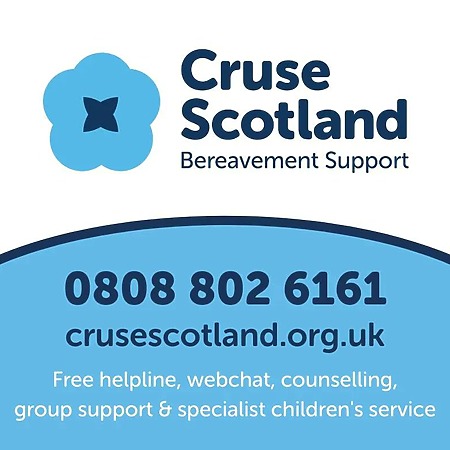Don't be too daunted
When someone close to you has died, the last thing you want to be dealing with is bureaucracy.
We get that. But you can’t hold a funeral until the death has been registered, so it is best to get the process underway as soon as you feel able.
We're here to help & support
However, you don’t need to wait until the death has been registered to begin organising the funeral, so contact us as soon as you can and we’ll help take some of the weight off your shoulders. You can call us anytime of day or night in 0800 996 1927 – we’ll always be there when you need us.
Not only will we discuss the funeral options and begin to make the arrangements you choose, but we’ll talk you through the whole process and advise you on everything that needs to be done.
Don’t be too daunted. Essentially, it’s a simple 3 step process – although those steps can vary depending on the circumstances of the death or the deceased.
Step 1:
Contact your Funeral Director.
Call us any time day or night on 0800 996 1927.
If the person died at home or in a care/nursing home then, once a medical professional has verified the death, we’ll attend to bring them into our care.
If they died in a hospital, you can of course still call us anytime to let us know, and we’ll then contact the hospital to arrange a time to bring them into our care.
Step 2:
Obtaining a Cause of Death Certificate.
This is just what it sounds like. An official document that records the cause of death and allows you to register the death at your local registrars.
If a person has died at home or in a care home, the GP that attends will email the appropriate registry office. If they’ve died in hospital they will arranges this.
Step 3:
Registering the death
Registry Office
Unless the death has been referred to the Procurator Fiscal (see below), this needs to be done within 8 days of the Cause of Death Certificate being issued. Usually done by the next of kin, a close relative or a friend of the person who has died, the death must be registered by a ‘legally responsible person’.
That definition can also include the occupier of the premises where the death occurred, or indeed the person who has been tasked with arranging the funeral.
The registrar will need some information:
- The name and address of the person who has died.
- Their date and place of birth
- The date and place of death
- Their occupation (if applicable)
- The name and address of their husband, wife or civil partner.
- Details of any state pension they might have been receiving
- And your name, address and relationship to the deceased
The following documents might be useful too:
- Proof of their address (like a utility or credit card bill
- Their birth certificate
- A marriage or civil partnership certificate
- A medical card
Procurator Fiscal Involvement
Sometimes a report may need to go to the Procurator Fiscal – please don’t worry if this happens, it is quite common.
There are many reasons why a report is sent, such as it may have been a long time since they had been seen by their GP.
Sometimes the Police may also be brought in, whist this can be upsetting it is nothing to worry about, it is simply a part of normal procedures.
What happens next?
We’re here to help you every step of the way. Call us anytime on 0800 996 1927 and we’ll answer any queries or concerns you might have. That’s what we’re here for. You may also find this information in this booklet What to do after a death in Scotland useful.
The registrar can now issue you with both a death certificate, and certificate for burial or direct cremation, which will be sent directly to us, the funeral can take place.
As well as organising the funeral, you might need to begin contacting banks and insurance companies of the deceased as you start the process of putting their affairs in order. Many of these organisations will ask to see the death certificate so it might be worth asking the registrar for an additional copy or copies. These are available for a small fee.
Cruse Bereavement Scotland
We are delighted to support Cruse Bereavement Scotland in the important work they do providing professional support for bereaved adults, children and families across Scotland.
You can contact Cruse Bereavement Scotland on 0808 802 6161 (calls are free) available Monday to Friday 9am to 8pm and weekends 10am to 2pm.

